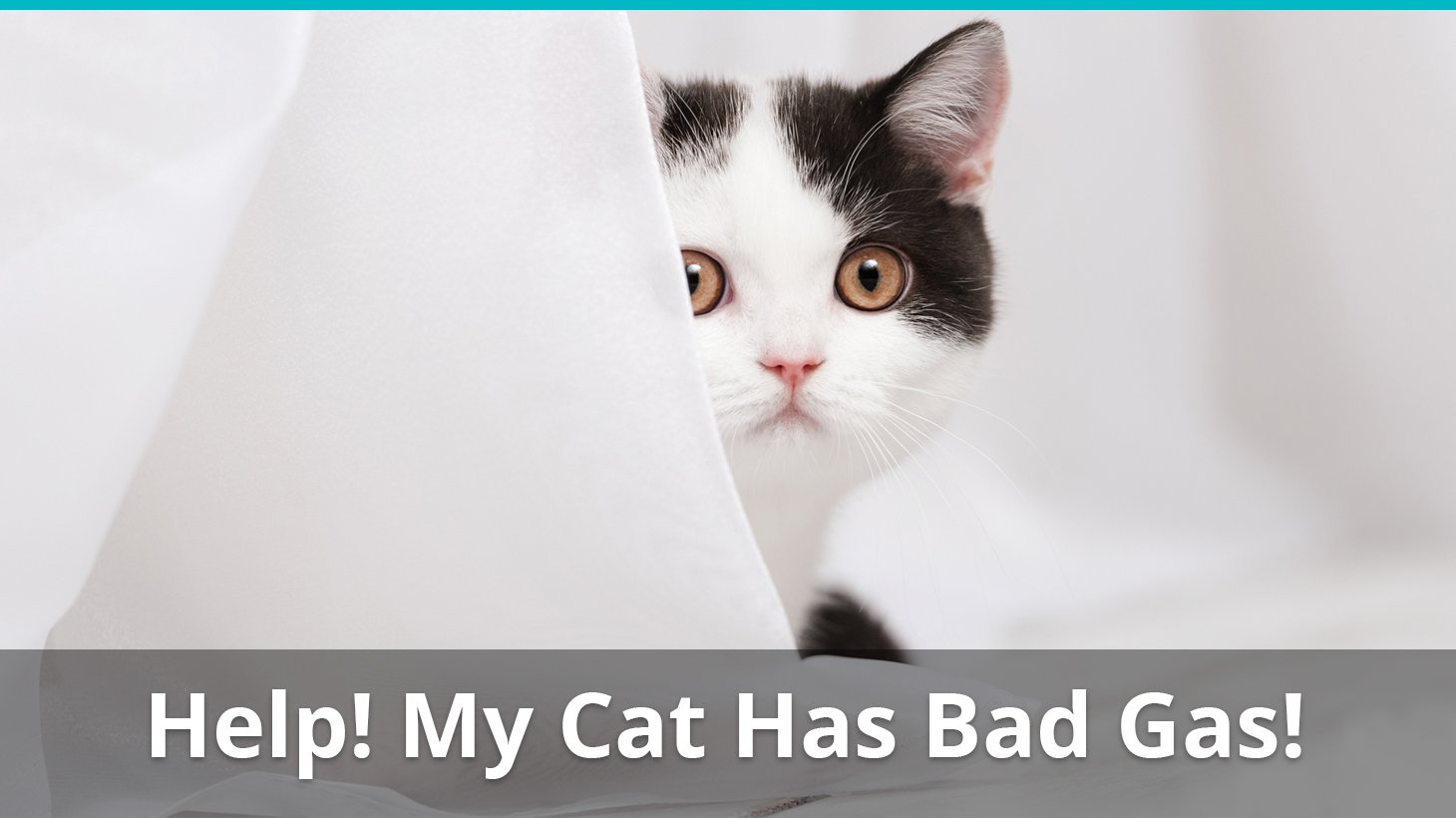Do cats suffer from bad gases? What can cause flatulence inside a cat’s organism? Is it dangerous? What can it mean? And what can you do if your kitty already has bad gas?
Let’s start with the obvious. Yes, cats can fart, and it’s not pretty or pleasant, but don’t rush into panicking just because your pet’s rear end doesn’t smell like roses.
Flatulence is only natural, even when it comes to feline creatures. Just like humans and canines, cats can experience gas. However, they don’t see it as something negative, repulsive, or embarrassing, which is why they won’t show any signs of improper behavior.
Nevertheless, in some cases, the cat may indeed be suffering from bad gases, which could be an indicator of a gastrointestinal issue or an undiagnosed medical condition.
What’s Causing The Gases?
There are many reasons why your furball has bad gas. Digestive problems, gastrointestinal diseases, allergies, diet changes, and infections are some of the main causes for flatulence, whether it’s silent, noisy, odorless, or simply sickening in terms of stench.
Food
Cats have special dietary needs, especially the indoor ones. If you’re giving human food and/or low-quality cat food to your pet, all those fillers and carbohydrates will cause excess gas and stinky bacteria to build up.
Sudden changes in diet and an abrupt transition from one type of food to something completely different will do the same to your furry pal.
Finally if your cat is a “curious” eater, they may have gotten into some garbage, spoiled food, swallowed another cat’s hairball, or gotten into something they shouldn’t have.
Allergies
Many cats can develop allergies or sensitivities to cigarette smoke, food items, carpet cleaners, mold, chemicals, grass and weeds, ticks, fleas, pollen, and so on. And food allergies will most definitely cause bad gas.
Swallowed Air
If your pet happens to gulp down everything it eats without chewing carefully, the swallowed air will create gas in its intestines. Depending on the type of food it has swallowed along with the air, the released gas could smell unflattering, to say the least.
Gastrointestinal Diseases
Digestive issues, inflammatory bowel disease, respiratory diseases, and exocrine pancreatic deficiency are among the most common gastrointestinal problems in cats. Typical symptoms are diarrhea and vomiting, even though these two don’t always come hand in hand with bad gas.
Intestinal Parasites
Hookworms, roundworms, tapeworms, Coccidia, and other intestinal parasites can irritate the digestive tracts, caussing your cat to pass gas.
Your veterinarian can test for these. If parasites are the reason for your cat’s flatulence, it is important to catch it early as delays can lead to more serious intestinal problems. They can also provide you preventatives to keep parasites at bay.
Anal Infection
Anal gland disease is common for felines, as well as abscesses on the anal glands. If your furball is suffering from these conditions, the smell won’t be triggered by the flatulence, but by the infections.
Other
If none of the above are the problem, your vet will likely want to run tests to see if there are blockages or other abnormalities that may be causing your cat’s gas. X-rays, blood tests, biopsies, and other diagnistics may be advised.
What Can You Do?
There are a number of ways to deal with bad gases in cats, especially if the reason behind them isn’t an actual disease. Here are the most common and most efficient preventative methods.
Change Your Kitty’s Food
Always use high-quality cat food made with appropriate ingredients. Make any transitions slowly by mixing old food with some of the new food. Try to stay away from cheese, milk, and other dairy products, as well as most other human foods.
Exercise
Staying active is a key factor if you want your cat to be healthy. Purchase scratching posts and make them more appealing with catnip spray. Opt for interactive toys or even for taking your cat on a walk.
Medication
One of the most common medications for bad gas is carminative, but don’t buy gas relaxants or other types of medication before consulting with your vet.
Seek A Professional’s Help
If the flatulence is bad and your cat is showing signs of pain, loss of appetite, depression, or any type of discomfort, it’s time to visit your vet. Make sure to go over all possible reasons for the gas, including mild ones like foods and probable allergies.
If you’ve taken care of felines before, you already know that releasing gases isn’t uncommon for cats, whether it’s silent, noisy, stinky, or odorless.
However, bad gases can indeed be an indicator for a health-related problem and the sooner you schedule a check-up with your vet, the sooner you’ll know if you need to take further action and undergo any procedures and necessary treatments for the issue at hand. Last, but not least, try to remain calm and don’t ever try self-diagnosing your pet.


I have an awesome white tabby…..hes fun n playful n gets plenty if exercise…but he has gas CONSANTLY….N ITS SO BAD I CANT EVEN HAVE COMPANY..hes an indoor cat…n i need to find out what to do….his farts are loud enough to hear….n the smell is WORSE THAN SEWAGE.N its not now n then its CONSTANT…please help me?!!
Hey Marlissa –
What kind of food does your cat eat?
Have you taken him to the vet to talk about this?